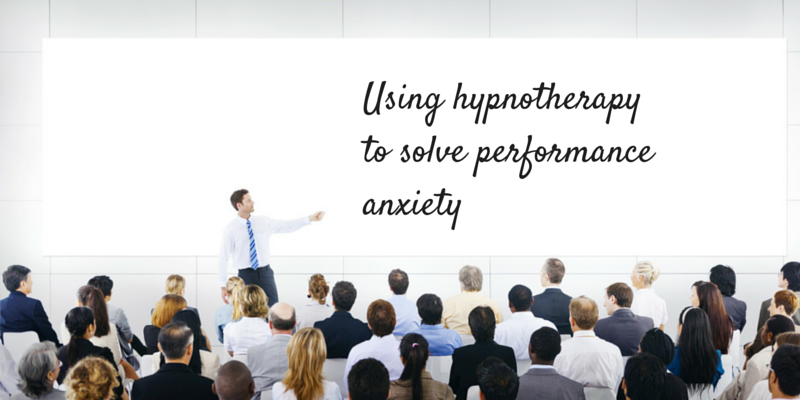Gratitude: the attitude that keeps us growing
What is gratitude? According to Google’s built-in dictionary, which is licensed from Oxford University Press, gratitude is:
- The quality of being thankful, and
- Readiness to show appreciation for and to return kindness
As therapists, and as students, we eagerly grab up all the experience and information we can, as it is presented to us. We take it in, use it for our own benefit, and share it with those who wish to attain what we have received.
All too often, we stay focused on our own success, or get lost in reverie about the way things used to be, when we first came to the awareness of new possibilities for healing. There’s also a tendency to take what we have in the present for granted. As we become stronger, more psychically integrated, and spiritually aware, we can often fall into a pattern of complacency, forgetting where our path began in the first place.
The ease of being thankful
Being thankful comes naturally to most of us. We think back on our experiences and how we’ve learned from them, and we say we’re glad we had them. Among many, rituals of thanks are extremely popular.
We can keep gratitude lists, listing the simple things we’re glad to have, or keep a “thank you” box, where we drop little bits of papers carrying descriptions of the things we appreciate into a decorative container, then open it up when we’re not feeling so glad to be alive.
These are the kinds of things we suggest to our clients, too. Being thankful is easy to do, and making pointed efforts to bring our attention to the good things we have can be supportive to the larger purpose of healing.While most of us what more than what we already have, taking time to consider our current assets and blessings makes clear just how well we are doing in life.
While being thankful is a good first step toward showing gratitude, there is more. Oftentimes, when we’re just listing what we’re thankful for, we tend to get into the mindset of “What I have, and what I don’t.” We might start to think about what we didn’t get, and dismiss the very people and places that gave us the experience we benefited from as outdated or irrelevant.
What’s new might not be so novel
Recent trends in psychology have placed a much-deserved emphasis on the role of trauma as the root of many psychological issues. It’s become a “must” to be “trauma informed,” and to approach clients with a more aware and sensitive attitude toward the experiences that have shaped them up to the point when they enter therapy.
New or revised “trauma-informed” labels placed on many healing modalities, from talk therapy and EMDR to physical therapy and yoga, have placed them in the minds of people as being something that no one has ever thought about or done anything to help up until now. The fresh “branding” of trauma-informed therapies can make a system of helping people to heal that has been dealing with trauma since its beginnings, be seen as “outdated” or “old-fashioned.”
We actually have had some comments of this nature directed at Heart-Centered Hypnotherapy. This year, The Wellness Institute marks 40 years in the business of teaching and administering Heart-Centered Hypnotherapy, a system of healing that is laser-focused on the effects of trauma on the human psyche, and helping the mental health professionals who have trained at The Wellness Institute, as well as their clients, to heal.
The grace of showing appreciation
The second part of the definition of gratitude, “readiness to show appreciation for and to return the kindness,” takes thankfulness to a whole new level. The fact that The Wellness Institute has been training professionals for 40 years in a therapeutic modality that focuses on trauma demonstrates the cutting-edge nature of the Institute’s teachings. Countless students have come back to us to express their gratitude for the training and the healing they received through our programs.
Furthermore, the way Wellness Graduates use their training, and give it back through their work with their clients, is rewarding and deeply gratifying.
This statement from one of our students, Mariko Prigel, who has been with the Institute since 2015, illustrates and expresses the deep appreciation we hear from many Wellness Graduates:
“I am a highly trained trauma therapist for children and adolescents. I learned much about trauma while working at a child abuse prevention association for 8 years. I began with TF-CBT (Trauma Focused CBT), and trained in EMDR, including attachment-focused EMDR. I’ve studied and worked with trauma-based play therapy, and attachment play therapy. Even now, most of the clients I work with suffer from trauma.
“With all of this knowledge about trauma, I entered Wellness training. It has been, and still is, a source of great updates for me. I am made stronger as a therapist because of my own healing work.
“In my opinion, doing just EMDR often allows clients to rationalize rather than process their emotions. They miss the emotional release part, which is such a key component of Heart-Centered Hypnotherapy. EMDR in combination with Hypnotherapy can be very powerful. It’s essential to use grounding and resourcing work, which I learned through my Wellness training as well as in EMDR. Without it, the client can be re-traumatized. This must be avoided, because it can be very dangerous. I have learned a much deeper level of grounding, resourcing, how to treat shock, and most important, healing, through Heart Centered Hypnotherapy training
My teachers, particularly David (Hartman) and Diane (Zimberoff), have always left me the space to learn as much as I want to add to my practice, and have encouraged me to blend what I already know with what I am learning.”
Mariko is now part of The Mentors Program. She, along with all Wellness Graduates, is also deeply appreciative of the large and diverse community of practitioners that comprise the network of Wellness practitioners. Because our training programs are based on group experiences, graduates develop bonds that remain intact long after the training ends.
Keep growing with Hypnotherapy
Even after 40 years and more than 5,000 graduates, The Wellness Institute continues to offer therapists and clients opportunities to grow, while also staying on the cutting edge of learning in the field. Now, you can participate in our programs totally online, without the need to be absent from your practice or neglect your family duties. Teachers and students alike affirm that the online format is equally, if not more effective, than in-person programs. The techniques have been adapted, and group members continue to develop a supportive, intimate atmosphere.
Our Six Day Training and Certification Program allows you to learn Heart-Centered Hypnotherapy in a very short period of time. You will see how hypnotherapy can be used to help clients heal the effects of codependency, addiction, sexual abuse, mind-body dysfunction, eating disorders, relationship addiction and more. You’ll also experience NLP techniques, and receive the opportunity to be therapist, client, and observer twice during the training.
Many Six Day graduates deeply appreciate the depth to which their learning and healing can go, and join the Advanced Internship Program. This eight-weekend experience, offered over about 18 months, explores healing issues in more depth. Students gain greater proficiency in Heart-Centered Hypnotherapy, learn Heart-Centered breathwork, and ultimately earn Certification as an Advanced Clinical Heart-Centered Hypnotherapist.
The Personal Transformation Intensive (PTI) Leadership program is designed to train students to facilitate weekend seminars they can offer to their clients. This is a fantastic way to expand your practice, as is acquiring a license for Trim Life™, a weight-release program based on Heart-Centered Hypnotherapy. You may be eligible, depending on state licensing guidelines, to obtain CEUs for your training at The Wellness Institute.
Gratitude emanates from so many who have been involved in Wellness programs, because this essential and trauma-informed training provides so much to be thankful for. More cutting edge programs, such as Transpersonal Life Coaching Certification, are being added to the curriculum, as The Wellness Institute continues to grow along the cutting edge, in gratitude, and with unconditional love.
Want to join, or reunite with The Wellness Institute’s circle of gratitude?








